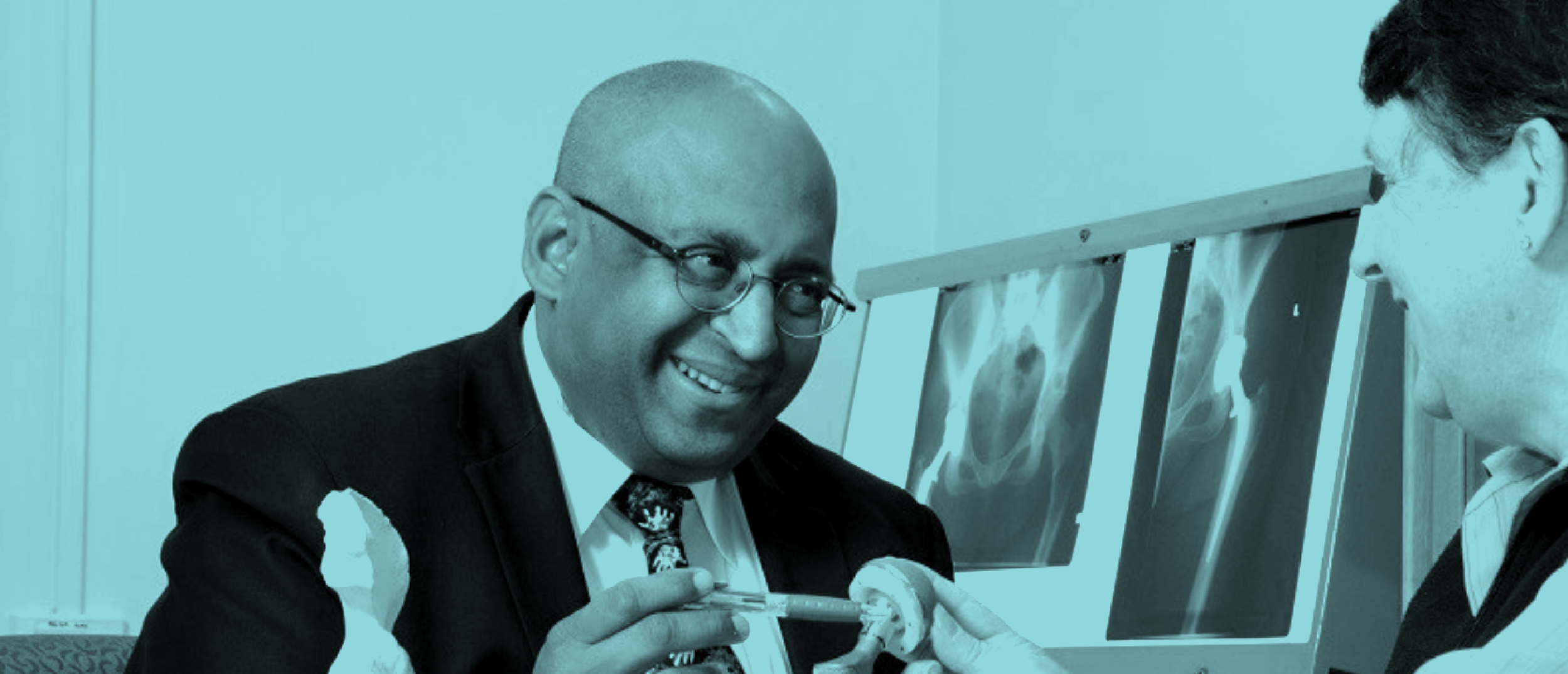
Total Shoulder Replacement
When you think about all the pulling, pushing and lifting a shoulder performs, no wonder it’s the most mobile joint in your body.
The world-class team of JRC orthopaedic surgeons specialise in diagnosing and treating all kinds of shoulder and elbow conditions, ranging from the routine to the highly complex. Most procedures are performed using keyhole surgery, reducing recovery times and allowing rehabilitation to begin sooner.
A total shoulder replacement (or ‘TSR’) is a surgical procedure which replaces the entire shoulder joint (the ‘glenohumeral joint’) with a prosthetic joint. It is sometimes referred to as a ‘total shoulder arthroplasty’.
It is a different procedure to the ‘reverse shoulder replacement’, which is where the ball and socket of the shoulder joint are literally reversed (the ball is attached where the socket was and vice-versa).
To distinguish the total shoulder replacement procedure from the reverse shoulder replacement, it is also sometimes referred to as an ‘anatomic shoulder replacement’, as the anatomy remains the same.
Prof Jegan Krishnan and Dr Sunil Reddy are experienced shoulder arthroplasty surgeons who will work with you to achieve the best possible results. Please make an appointment to discuss your shoulder problem – arthritis, rotator cuff tears or complex fractures.
Download our guide on Total Shoulder Replacement procedure and rehabilitation below.
Other Treatments
Prof Jegan Krishnan
Explains how a total shoulder replacement surgery takes place with The Joint Replacement Clinic.
Dr Sunil Reddy
Explains how a total shoulder replacement surgery takes place with The Joint Replacement Clinic.
Get in touch with our friendly team today to begin your journey to renewed mobility
Fill in our contact form and our experienced team will get back to you
What causes problems with the shoulder which this procedure can treat?
There are a number of conditions that can affect the shoulder which a total shoulder replacement may be able to treat. The most common conditions which may require the procedure are:
Arthritis in the shoulder
Arthritis describes a condition caused by the cartilage in the shoulder joint wearing away. This results in the loss of cushioning between the bones and causes ongoing pain.
Arthritis can have a range of causes – osteoarthritis is where the cartilage deterioration happens over time as we age (hence it is also called ‘degenerative joint disease’). It generally develops from the age of fifty.
Another cause of arthritis is any inflammation of the lining of the shoulder joint – this is called ‘rheumatoid arthritis’. The final form of arthritis is where cartilage damage is caused by some type of injury (‘trauma’) to the shoulder. In this case it is referred to as ‘post-traumatic arthritis’.
Fracture of the proximal humerus
(the bone in the upper section of the arm)
Referred to as a ‘fracture of the proximal humerus’, this is very common in older – especially female – patients, often caused by a fall. Where the resultant fracture is severe there may be many shards of bone which can be challenging to re-assemble and decreased blood supply to the bone.
Reverse total shoulder replacement may be the best treatment option with a severe proximal humerus fracture in the elderly.
Osteonecrosis
Also referred to as ‘avascular necrosis’, this is the death of bone tissue caused by lack of blood supply, which, if affecting the shoulder joint, can destroy it. Osteonecrosis is a risk where there has been a previous severe fracture, or where there is a history of alcohol abuse or steroid abuse. It can also be a risk in deep sea divers if they decompress too quickly (causing ‘the bends’).
Cuff tear arthropathy
Massive tears of the rotator cuff tendons in elderly can lead to pseudoparalysis or in more severe cases a condition called cuff tear arthropathy. This condition is managed with a Reverse total shoulder replacement.
Problems related to previous shoulder replacement surgery
In some cases, the prosthetic joint may loosen, shift out of position or become infected, in which case a revision procedure will be necessary.
Do you have joint pain? Would you like to investigate gap-free options?
Fill out our contact form and one of our experienced team will be in touch




